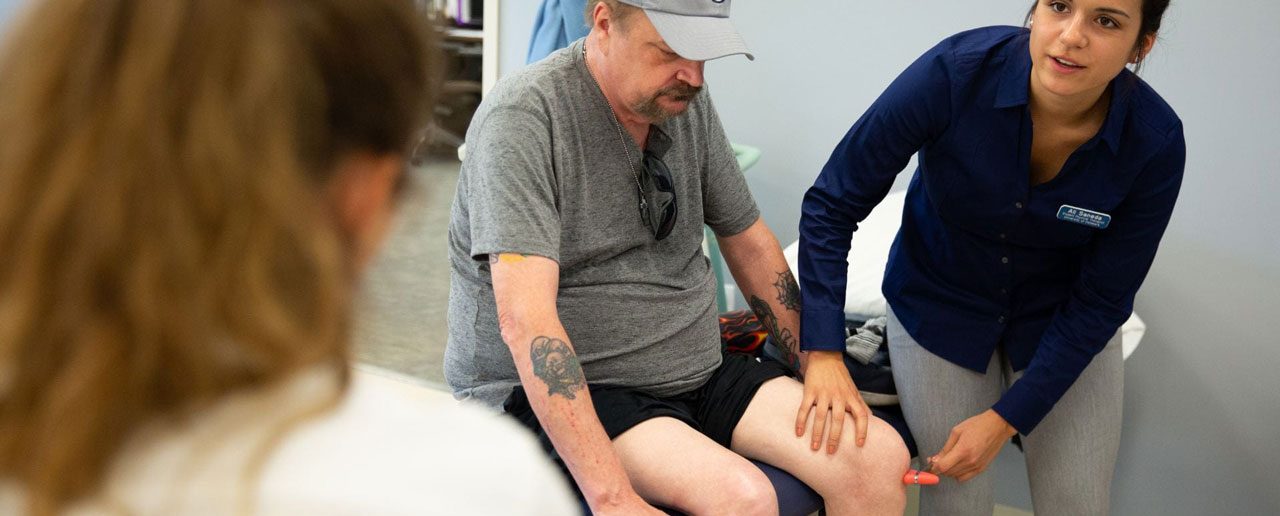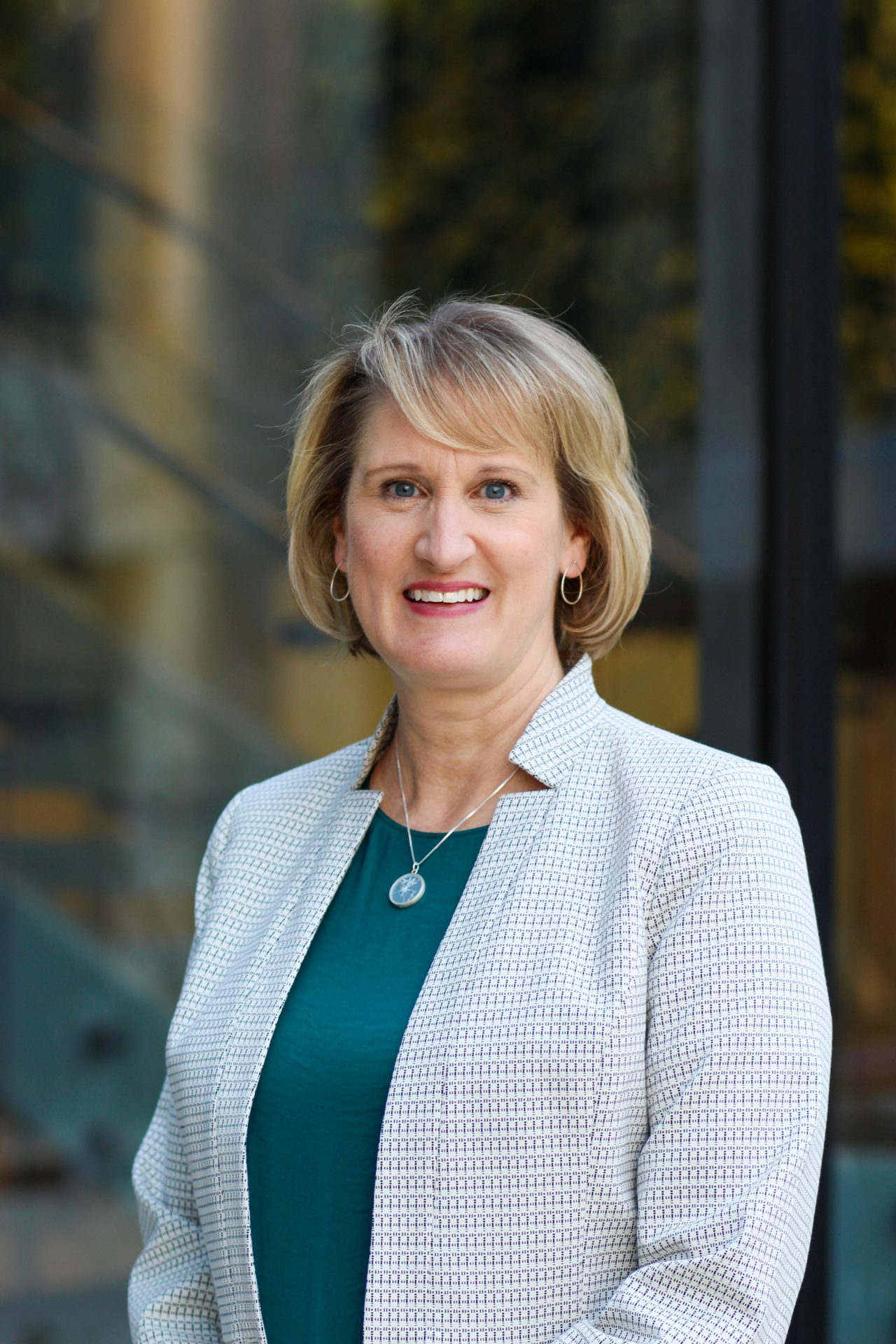
About the department

DEPARTMENT MISSION
The mission of the Department is to optimize quality of life and human function by transforming physical therapy. We advance our mission by:
- Providing inclusive and ground-breaking entry-level and post-graduate education.
- Fostering knowledge generation by leading federally funded research and knowledge translation to impact physical therapy practice.
- Providing experiential learning and service opportunities in the education of the next generation of clinicians, researchers, and leaders of our profession.
CORE VALUES
COLLABORATION: To cultivate a deep and ongoing relationship with the community that builds trust that the profession of physical therapy is a safe and cost-effective entry into the health care system and promotes equitable practices/services to support the wellbeing for all people.
CREATIVITY: In teaching, experiential learning, research design/implementation/dissemination to offer proactive solutions to enhance health service delivery and increase the value of PT to society.
EXCELLENCE: To establish and implement best practice standards in education, research, and across domains of practice to position physical therapists as providers of choice through provision of safe, effective, and equitable patient/client-centered care.
JUSTICE, EQUITY, DIVERSITY, INCLUSION (JEDI): To recognize health inequities/disparities and address obstacles to care through culturally responsive innovative service delivery, advocacy, collaboration with community partners, unique experiential research and learning opportunities.
ADVOCATE: To act as universal change agent through knowledge translation of evidence that ensures best practice and lends voice or support to purposely promote what is right.
COURAGEOUS LEADER: To embody/exemplify the professional behavior(s) that include authenticity, resilience, emotional intelligence, self-discipline and commitment to purpose.
Learn more about the Department of Physical Therapy's mission, goals, and strategies by reading the 2023-2028 Department Strategic Plan.
DPT PROGRAM
The mission of the Doctor of Physical Therapy Program is to educate outstanding entry-level physical therapists who provide excellent physical therapy services, integrate scientific inquiry into their clinical practice and have a well-developed sense of professionalism and social responsibility.
DPT PROGRAM GOALS & OBJECTIVES
Goal 1: The DPT Program will graduate students who demonstrate the knowledge, skills, and behaviors to:
- practice in a wide range of practice settings
- use evidence in guiding their clinical decision making
- behave professionally and in a socially responsible manner, and
- seek advanced training
Goal 2: The Department of Physical Therapy will recruit, train, and graduate individuals who will become outstanding physical therapists capable of meeting the needs of our profession and the patients we serve.
Goal 3: The Department of Physical Therapy will maintain outstanding Physical Therapy clinics that support the education of Doctor of Physical Therapy students and physical therapists, supports rehabilitation research, and provides service to the community.
Goal 4: The tenure-track core faculty in the Department of Physical Therapy will be national leaders in conducting outstanding federally and non-federally funded rehabilitation research and will train the next generation of outstanding rehabilitation researchers and physical therapy educators.
The University of Delaware Doctor of Physical Therapy (DPT) Program is a University based physical therapist educational program housed within the College of Health Sciences. The DPT program faculty members believe that the University is an appropriate environment for the education and development of future physical therapists, especially at the doctorate degree entry-level.
In addition to preparing graduates to be entry-level generalists, they are also capable of pursuing a specialty area within the profession or for further graduate work in a research environment. As a program within a State supported institution of higher learning, we recognize the need and obligation to address the continually changing physical therapy needs of the State of Delaware. We also recognize the considerable commitment the State and University of Delaware have made to the growth and development of this program. As a member of the College of Health Sciences, we are responsive to the development of partnerships throughout the state in an era of interdisciplinary collaborative healthcare to enhance our student learning, research diversity, and post professional training.
The physical therapist is a professional member of a health care team who views the patient as an individual with physical, intellectual, and psycho-social needs. It is the unity and dynamic nature of these dimensions that must be recognized and respected in each individual if the health care team is to serve humanity adequately in a multi – cultural environment. Interwoven in this philosophy is the belief in the dignity of humankind, the right of quality health care services, and the potential of the individual as a consumer to actively participate in the health care process. It is the team concept, with the patient as an active participant that best serves the needs of the patient in maintaining or restoring his/her state of health and well-being. Physical therapists must be excellent communicators as well as facilitators of communication if this goal is to be reached.
Physical therapists serve many roles. Their primary professional duty is to provide excellent health care and to act as a patient advocate. They also act as administrators, consultants, educators, and researchers. As such, the educational preparation of the physical therapist is an integrative process, drawing from the liberal arts, basic sciences, natural sciences, and applied sciences.
The DPT curriculum is predicated on evidenced-based practice. Clinically oriented courses draw extensively from primary source research as well as traditional theory and practice. A strong foundation in basic science is established early in the curriculum alongside courses in which students learn skills necessary for the practice of physical therapy. Integration between didactic courses and clinical practice takes place in our on-site PT clinics, which are a fundamental component of our Program.
A major goal of the curriculum is to encourage students to develop lifelong learning skills as a means to remain up to date throughout their careers. This is accomplished, in part, by educating students to be consumers of relevant literature and to make wise choices for their future continuing education experiences. Recognized clinical experts are regularly utilized as instructors in the program in an effort to further develop the relationships between expert clinical practice and research.
The future of health care has always rested on the art and scientific inquiry of its practitioners. Physical Therapy is a profession, that like other health care professions, is ever evolving and advancing in the quality, nature, and extent of services offered. The body of knowledge of Physical Therapy will only grow if its practitioners engage in basic and clinical research. The PT Program at the University of Delaware is firmly committed to developing new knowledge and advancing the profession of physical therapy.
The University of Delaware does not discriminate against any person on the basis of race, color, national origin, sex, gender identity or expression, sexual orientation, genetic information, marital status, disability, religion, age, veteran status or any other characteristic protected by applicable law in its employment, educational programs and activities, admissions policies, and scholarship and loan programs as required by Title IX of the Educational Amendments of 1972, the Americans with Disabilities Act of 1990, Section 504 of the Rehabilitation Act of 1973, Title VII of the Civil Rights Act of 1964, and other applicable statutes and University policies.
(Approved by faculty 2019)
Message from the Chair

The Physical Therapy Department at University of Delaware has one of the highest ranked DPT programs in the country. The Department is involved in several exciting educational programs including an outstanding DPT program, accredited by the Commission on Accreditation of Physical Therapy Education (CAPTE) since 1976. We also are part of two highly successful Interdisciplinary PhD Programs, including Biomechanics and Movement Sciences and Neuroscience, and Clinical Residency Programs for practicing clinicians in sports, orthopedic, neurologic, geriatric and acute care physical therapy. In addition to our academic programs we have two Physical Therapy Clinics, that provide outstanding rehabilitation services to the community in addition to serving as educational settings for our DPT students, PhD students, Residents and practicing clinicians. We also have faculty who are world renowned researchers who contribute to improving the field of physical therapy and provide state of the art education for our students.
Underpinning our department is a firm commitment to prepare our students for an interconnected and diverse world and health care landscape. We embrace diverse and inclusive educational, clinical, and social environments, and truly believe that our profession of Physical Therapy is enriched by the contributions and full participation of people from different backgrounds. We are actively working on promoting diversity and inclusion within the department. For our prospective students, I encourage you to learn more about our Rehabilitation Careers for All (RCA) program. I’m happy to receive feedback regarding our Program and our students. For questions or concerns please contact me directly.
Sincerely,
Darcy S. Reisman, PT, PhD, FAPTA
Professor
Chair, Department of Physical Therapy
dreisman@udel.edu
(302) 831-0508
